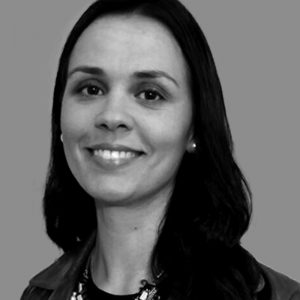Summary
The evaluation has moved up the agenda in Science Communication. However, some procedures, while available, may be too obtrusive to use recursively in science centers and/or conflict with science center visitors’ agendas. I SEA’s goal was to develop a non-obtrusive, valid and replicable method to evaluate audience attitudes about science communication projects through an immersive virtual reality environment that could improve exhibitions while educating and empowering citizens.
The project embraced the Azores International Research Center agenda, specifically, deep-sea ecosystems sustainability, by producing new digital content and carrying out pilot studies in local and national science centers. This approach aimed at filling a gap in existing models that 1) failed to account for self-generated visitor narratives about their science center experiences; 2) ignored the role of the visitor in the evaluation process itself; and 3) disregarded the effects of test-enhanced learning in the transferability of knowledge to other contexts. The project consisted of a pilot study on deep-sea ecosystems, using immersive virtual reality environments to understand and evaluate the audience’s attitude towards Science Communication project.
Results obtained seem to support our main goal, that is, to validate a non-invasive replicable method of evaluating science communication, as the majority of participants responded to an automatic interview embedded in the VRE, making sense of the experience. In addition, information collected through the I SEA’s Analysis System (AS) correlate with information from in-person interviews and questionnaires. For example, participants’ choice of character (i.e. environmental activist, economist or scientist) in the VRE partially mirrors their attitudinal position towards the deep sea’s preservation, and its economic or scientific exploration. On the other hand, results also ask for the development of new, VRE integrated measures of science communication evaluation.
The results of the previously mentioned research suggest that virtual reality (as an emerging technology) is objectified in specific equipment like headsets and anchored to computers and games, associated with immersion and interactivity. Virtual reality appears to be a promising symbol for the technology of the future. However, the risk mentioned by the participants and the disadvantages presented in the form of illusion, alienation, falsity and addiction, underlines the tension between potentialities and threats. The triangulation between these preliminary results and the set of interviews highlighted the potential for acceptance of the project’s major technological and communication outcomes.
| Title | Immersive virtual reality environments to evaluate audience attitudes about science communication projects: a pilot study of deep sea ecosystems |
| Reference | UTAP-EXPL/CD/0106/2017 |
| Scientific Area | Space-Earth Interactions |
| Funding | € 99 860,00 plus matched funding at UT Austin |
| Leading Institution | Faculdade de Ciências da Universidade do Porto (FCUP) |
| Participating Institutions | The University of Austin at Texas (UT Austin) Associação para a Promoção de Investigação em Design e Arte (ESAD IDEA) Centro de Astrofísica da Universidade do Porto (CA/UP) ENIGMA VIRTUAL, LDA Faculdade de Engenharia da Universidade do Porto (FEUP) Sociedade Afonso Chaves (SAC) |
| Duration | 24 months |
| Begin date | November 1, 2018 |
| End date | October 31, 2020 |
| Keywords | Digital Media, Immersive Virtual Environment, Science Communication, Evaluation methods |
| Website | https://www.fc.up.pt/isea/ |
Main Highlights
- Development of the narrative to enrich the virtual reality immersive experience, attending to three fundamental points of the transformative game model;
- Delimitation and development of a whole set of data collection instruments which allow the team, in a non-obstructive way, to obtain indicators about participant awareness, understanding, and engagement with deep-sea ecosystems;
- Perception of directors, monitors, and visitors of the Planetarium and Expolab Centers on how the non-obtrusive digital evaluation method, directly integrated into an exhibition, would work in a real context. That led the team to carry out a significant number of interviews, followed by transcription and intensive content analysis to make sense of the wealth of data collected;
- Usability studies focused on the technological development and capsule design options used in the virtual reality experience, taking into account necessary adjustments. Production of one animated infographic and two roll-ups that scientifically portray the water column and the entire ecosystem of deep-sea hydrothermal vents, reinforcing the increased output of content to support the project;
- Development of the digital prototype in virtual reality environments. Production of the physical prototype. The two physical prototypes were installed as planned at Expolab and Planetarium of Porto. Pilot studies for the individual and collective conditions were carried out. The team found out that the exhibition effectively communicated important knowledge about the deep sea.
Indicators
- 9 Oral Communications;
- 1 Book published;
- 1 Book chapter published;
- 1 Doctoral, 4 MSc. and 2 Undergraduate students involved in research work;
- 1 Mobility exchange supported;
- 2 Prototypes (digital and physical);
- 1 New funding application deriving from I SEA project;
- 1 Summer School organized in PT.
Papers and Communications
- Morais, C., Moreira, L., Teixeira, A., Aguiar, T., Coelho, A., Pereira, V., Jacinto, A., Varzim, M., Paiva, J. C., & Rosa, M. (2022). Visitors come to experience science: towards a non-obtrusive evaluation method based on immersive virtual reality. In Journal of Science Communication (Vol. 21, Issue 01, p. A04). Sissa Medialab Srl. https://doi.org/10.22323/2.21010204
- Morais, C., Moreira, L., Teixeira, A. S., & Aguiar, T. (2021). No waves from surface knowledge: diving into the social representations of the deep sea. In International Journal of Science Education, Part B (Vol. 12, Issue 1, pp. 22–41). Informa UK Limited. https://doi.org/10.1080/21548455.2021.2017507
- Morais, C., Coelho, A., Jacinto, A., & Varzim, M. (2020) (Eds.). The I SEA Project: Digital Publications. Porto: Faculdade de Ciências da Universidade do Porto, Faculdade de Engenharia da Universidade do Porto, Escola Superior de Arte e Design. ISBN: 978-989-746-279-5. https://doi.org/10.24840/2020/978-989-746-279-5
- Morais, C., Paiva, J. C., Moreira, L., Aguiar, T., & Teixeira, A. (2019). Non-invasive and replicable method for evaluating science communication activities: Contributions from I SEA project. VII Congreso de Comunicación Social de la Ciencia (CCSC19) (p. 78), Universidad de Burgos and Asociación Española de Comunicación Científica, Burgos, Spain
- Morais, C., Paiva, J. C., Moreira, L., Aguiar, T., & Teixeira, A. (2019). I SEA project: challenges from science communication and evaluation methods using virtual reality in non-formal contexts. In L. Gómez Chova, A. López Martínez, & I. Candel Torres (Eds.), ICERI2019 Proceedings (pp. 4690-4699). Seville: IATED. ISBN: 978-84-09-14755-7. https://doi.org/10.21125/iceri.2019.1155.
- Morais, C., Paiva, J. C., Moreira, L., Aguiar, T., & Teixeira, A. (2019). Communicating cutting-edge marine science through immersive virtual reality: Contributions from I SEA project. Abstract Book 7th European Marine Science Educators Association Annual Conference (EMSEA2019) (p. 21), EXPOLAB, São Miguel, Azores, Portugal. http://www.emultimedia.com.pt/publications_fct_2020/A4.pdf
- Simões, R., Morais, C., & Moreira, L. (2019). Multimedia and virtual reality into communication practices of science centers: A social representations perspective. In L. Gómez Chova, A. López Martínez, & I. Candel Torres (Eds.), ICERI2019 Proceedings (pp. 4746-4752). Seville: IATED. https://doi.org/10.21125/iceri.2019.1165
- Vieira, J., Nóbrega, R., Pereira, V., Coelho, A., Jacinto, J., & Morais, C. (2019). Knowledge Analysis Automatic Evaluation in Virtual Reality Immersive Experiences. In International Conference on Graphics and Interaction (ICGI) (pp. 122-129). IEEE. DOI: https://doi.org/10.1109/ICGI47575.2019.8955099
- Morais, C., Paiva, J. C., Moreira, L., Teixeira, A., & Aguiar, T. (2019, October). Discovering social representations of deep-sea, virtual reality and science communication: Contributions from the project I SEA. In International Congress on Technology, Science and Society. Madrid, October, 3-4, 2019
- Pereira, L., Morais, C., & Moreira, L. (2019, October). Reshuffling virtual reality and science communication: Synergies based on the transformational play. In International Congress on Technology, Science and Society. Madrid, October, 3-4, 2019
- Coelho, A., Morais, C., Atkinson, L., Jacinto, A., Nóbrega, R., Varzim, M., Paiva, J. P., Moreira, L., Aguiar, T., Teixeira, A., Vieira, J. & Coelho, D. (2019). I SEA – Virtual reality to evaluate audience attitudes about science communication. UT Austin Portugal Program’ 2019 Annual Conference, Braga, Portugal
- Morais, C., Atkinson, L., Coelho, A., Jacinto, A., Nóbrega, R., Varzim, M., Paiva, J. C., Moreira, L., Aguiar, T., Teixeira, A., Vieira, J., & Coelho, D. (2020). “Immersive virtual reality environments to evaluate audience attitudes about science communication projects: A pilot study of deep-sea ecosystems”. UT Austin Portugal’s 2020 Annual Conference: Innovation at the Intersection of Academia and Industry, 7 e 8 de outubro de 2020
E-Poster
Project Team
Carla Morais
I SEA
Lucy Atkinson
I SEA


